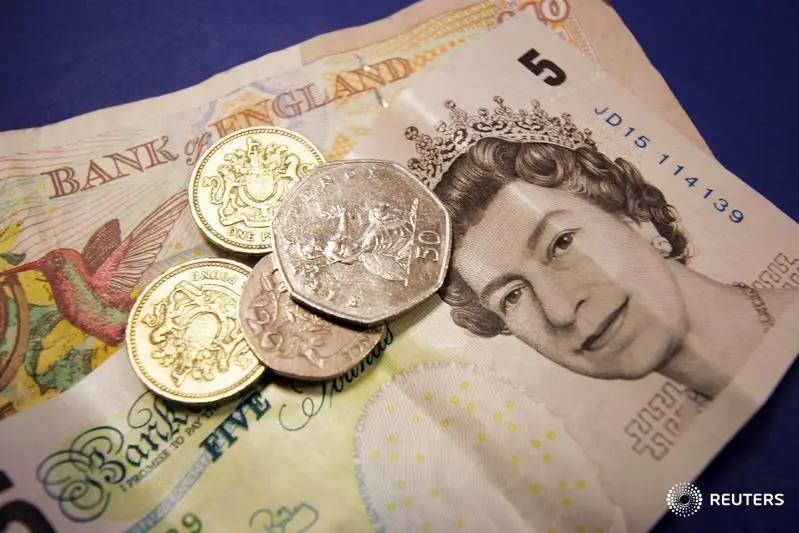PHOTO
Sterling slid on Monday in a risk-off trading day, ahead of a busy week for data with markets expecting Britain's employment and inflation figures to provide clues on when the Bank of England (BoE) will start loosening monetary policy.
With U.S. markets closed for a public holiday, European shares fell and government bond yields rose on warnings against premature rate cuts from the European Central Bank (ECB).
Investors are awaiting a slew of UK economic data this week, including job figures on Tuesday, inflation data on Wednesday and retail sales numbers on Friday.
Risk-sensitive sterling fell 0.17% to $1.2729, but stayed within sight of its late December peak of $1.2825, which was the highest since August.
Against the euro, it slipped 0.15% to 86.02 pence, pulling back from a three-week high against the single currency hit last week.
"Sterling is moving lower amidst generalized risk negativity -GBP remains a high beta play- while markets likely speculate on near-term data risks," said Jeremy Stretch, head of G10 FX Strategy at CIBC Capital Markets.
"We would expect average hourly earnings, CPI, and retail spending to all undershoot expectations this week."
Money markets are pricing in around 130 basis points of interest rate cuts from the BoE by the end of the year, with a first cut likely in May, according to LSE Group data.
Stretch said that he expects the BoE to be slow to cut rates, with a likely first cut in August, as the central bank fears both persistent inflation and the risk of additional fiscal easing in the UK March budget.
"The slower BoE reaction function does not necessarily guarantee sterling support as BoE reticence comes as macro performance looks set to remain relatively lacklustre," he said.
Data last Friday showed Britain's economy grew slightly more strongly than expected in November but remained at risk of slipping into a mild recession, a potential blow for Prime Minister Rishi Sunak before an election expected in 2024.
(Reporting by Joice Alves; editing by Christina Fincher)





















